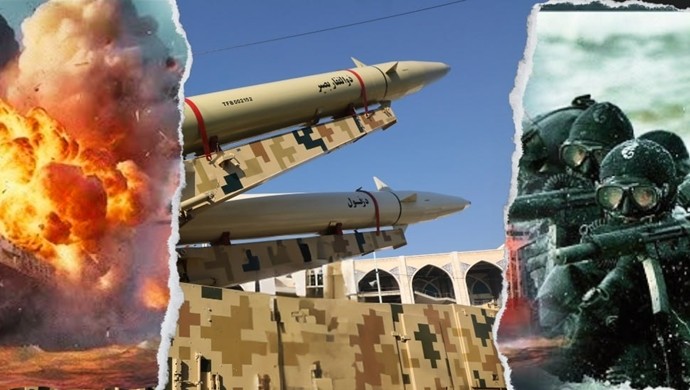In his speech during the Persian New Year, Ali Khamenei, the supreme leader of Iran’s regime, declared the Palestinian issue and the Gaza situation as “a top-tier concern.” Khamenei emphasized that “resistance in Western Asia today is a critical issue.” This stance is particularly notable amidst the regime’s internal challenges, including ongoing uprisings and the existence of a viable alternative to the current regime. Khamenei’s statement arrives at a juncture where the regime’s crisis of existence, teetering between persistence and downfall, is observable to both domestic and international onlookers.
There is no arguing that the regime’s main concern is the risk of being overthrown by the people of Iran and their resistance movement. In an effort to avert or minimize this threat, Khamenei are stirring conflict in the region, sacrificing the lives of innocent individuals in Gaza and Palestine.
This tactic of deflecting focus from Iran’s internal instability bears resemblance to the approach taken by regime founder Ruhollah Khomeini during the eight-year Iran-Iraq War in the 1980s. Faced with the need to quell opposition forces and consolidate power, Khomeini deemed it essential to engage in a conflict with Iraq. He argued that the war was beneficial in spreading the revolution globally, depicting it as an eternal struggle between good and evil.
Three and a half decades after the Iran-Iraq War, remarks by Ahmad Alamolhoda, a senior cleric and representative of the regime, underline the significance of conflict in Gaza for Khamenei, suggesting that the turmoil in Gaza “altered history and damaged the image of America and other arrogant powers internationally, including among their allies and those hopeful of them.”
This alleged “historical change” signifies Khamenei’s desperation to escape the deadlock of his regime’s potential overthrow. Yet, historical events suggest that Khomeini had no intention of ending the war until his regime was faced by the real threat of the National Liberation Army of Iran.
The adoption of a “big lie” strategy eventually compelled Khomeini to agree to a ceasefire, without acknowledging the immediate cause for his decision. But other regime officials admitted that Khomeini ended the war because of the advances made by the PMOI.
In 2008, Mohammad Esmaeil Kowsari, a commander of the Islamic Revolution Guards Corps (IRGC), told the IRGC-run Javan newspaper, “The enemies had made extensive plans and conspiracies, such as the [PMOI] before the Eternal Light operation. In Mehran, they carried out a successful operation two months earlier and they were chanting, ‘Today Mehran, tomorrow Tehran.’ … [Khomeini’s] acceptance of the ceasefire foiled these plots.”
Currently, Khamenei’s failure to derive long-term strategic benefits from provocations in Gaza is apparent. His failure to rally the people to vote in his recent sham parliamentary elections serving as a prime example of this fiasco. Had there not been a democratic alternative to stand up against the regime, Khamenei might have temporarily succeeded in Gaza. Nonetheless, the Iranian Resistance’s efforts against the regime’s terrorist endeavors have internationalized its threat. Simultaneously, the network of Iranian Resistance activists inside Iran are keeping the regime on its heels and preventing it from expanding the reach of its repressive apparatus.





